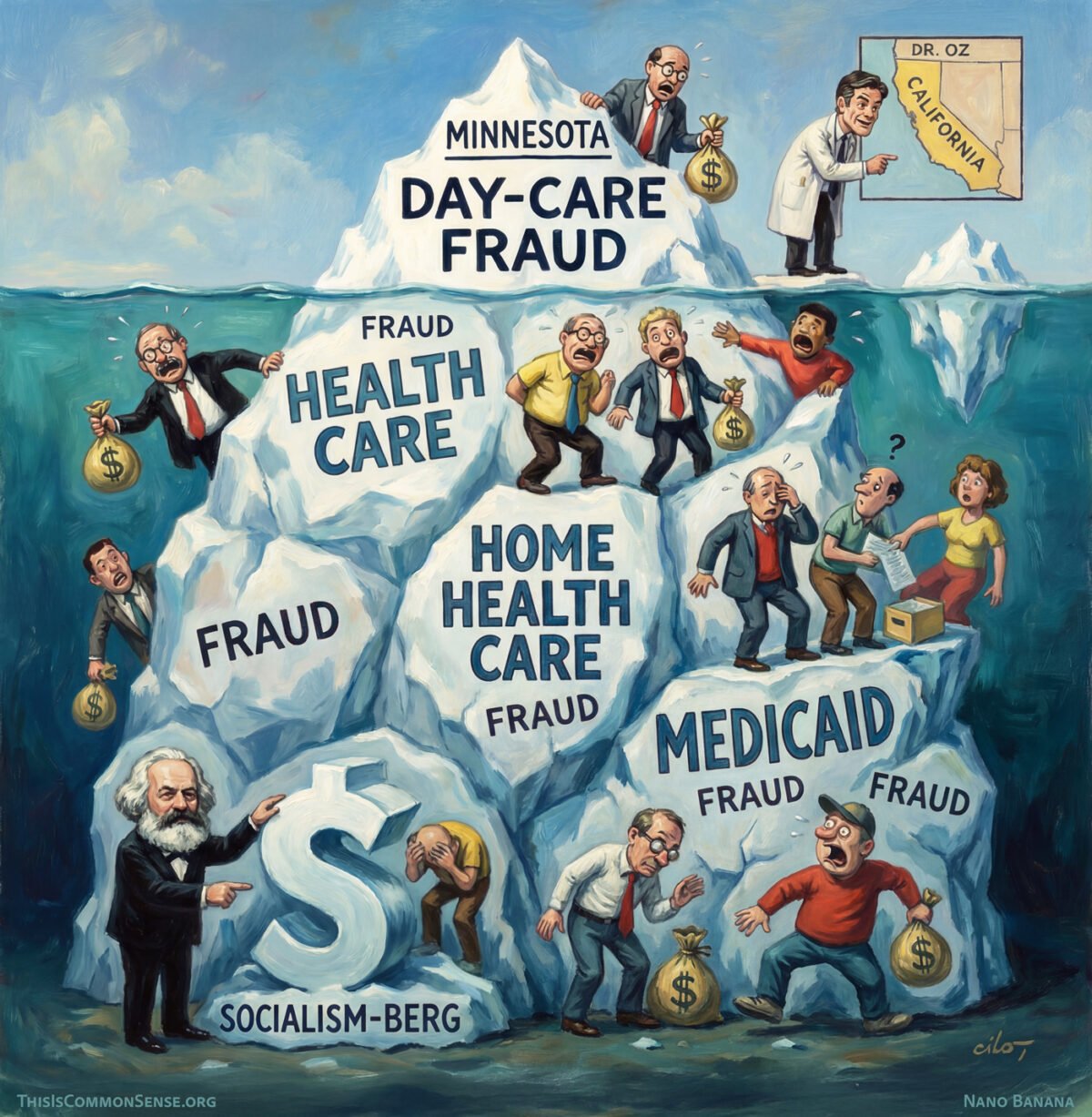Yesterday, I refrained from completely quoting Dr. Mehmet Oz, administrator of the Centers for Medicare and Medicaid Services, saving for today the juiciest part. After declaring the fraud in Minnesota dwarfed by what he saw in California, Oz said, next: “which is whole-scale cultural malfeasance around health care.”
“Cultural”?
Dr. Oz clarified at length: it’s about the cover-up. Minnesota’s fraud network? Bureaucrats knew. But when a whistleblower tried to toot on the proverbial whistle, these folks, Oz explained, were “culturally … dissuaded, intimidated, from speaking up.”
This would happen “any time people raised the possibility that, for example, the Somalian subpopulation, who have different cultural mores than the folks who have historically been in Minnesota, might be taking advantage of systems that were built for Minnesota nice people.”
The “cultural” aspect is the pseudo-niceness of political correctness. “So you have well-meaning people trying to be nice, trying not to ruffle any feathers. If you do ruffle feathers, you get outed.” The auditors lacked the temperament to actually audit, with those daring few speaking up systematically prevented — shuffled away — from doing any actual work.
“Although you may still have a job there, you don’t get to do anything in that job.”
While Oz claims not to know how high up cover-for-fraud goes, I’ve a hunch that the smart ones in government know all-too-well what they are doing. They certainly know the fear. And use it.
It’s suffused throughout: “cultural.”
This story is not unrelated to the grooming gangs in Britain, Finland and elsewhere, allowed for years by police to carry on what we used to call “white slavery” because the cops feared being called racist.
You cannot have watchdogs too “nice” to bark.
This is Common Sense. I’m Paul Jacob.
Illustration created with Nano Banana
See all recent commentary
(simplified and organized)
See recent popular posts






